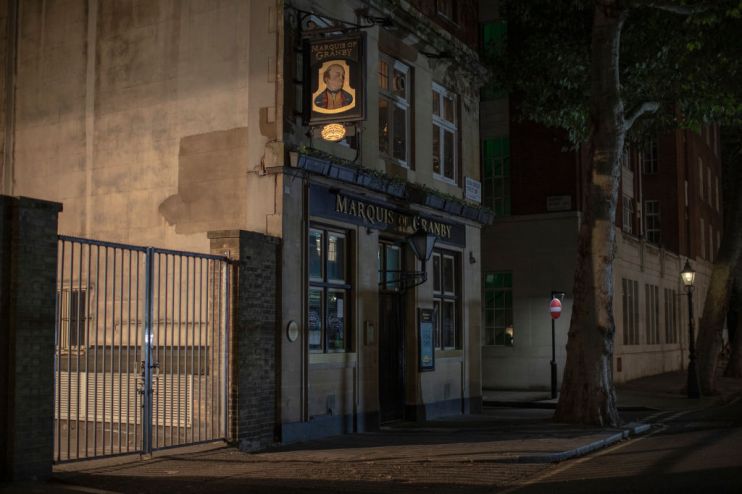London’s night life is in dire straits, and Sadiq Khan is unlikely to turn it around

London’s night life offering has become the dullest party around, but it is unlikely another term for Sadiq Khan will liven things up, writes Eliot Wilson
With only 10 days till the election for mayor of London, the leading candidates have finalised their pitches to the capital’s electorate. It is effectively a two-horse race between the incumbent, Labour’s Sadiq Khan, and Conservative challenger Susan Hall. Although the introduction of first past the post might have shaken up the contest, Khan’s opinion poll lead is comfortably between 10 and 20 per cent.
Last week, Hall announced that she wanted to help revive London’s night life, and pledged to extend the Night Tube service to the Hammersmith and City line, with an aspiration to take in the District, Circle and Metropolitan lines “when feasible”. The service currently operates on Friday and Saturday nights on the Central, Jubilee, Northern, Piccadilly and Victoria lines.
She hit the nail on the head when she explained the decision: “The only way we’re going to get more business and the night-time economy back working is to be able to get people in and out of London and make sure they feel safe.” In a city which trumpets its round-the-clock credentials, the fact that a major public transport network can begin closing around midnight is absurd and embarrassing.
The mayor, of course, admits no possibility of defeat. His night czar, broadcaster and comedian Amy Lamé, wrote earlier this year that “London is the best 24-hour city in the world”, and proclaimed herself “so proud that we are leading the world in 24-hour policy, with other global cities looking to London for inspiration”. A closer reading revealed that she takes things “very seriously”, “steps in to support” venues, “helps” them keep their doors open and is “instrumental in supporting” things. The problems of London’s night economy go deeper than that.
Hospitality venues are closing, and the number of late licences is falling in step with that. Licensing is a major issue for new and existing venues: liberalising measures like the use of pavements for café tables during lockdown were quickly scrapped by local authorities when the emergency passed and those repressive instincts reached a nadir last year when Westminster Council only reluctantly granted bakery chain Greggs permission for its Leicester Square outlet to stay open beyond midnight. A 24-hour licence was refused in 2022 for fear of it becoming a “hotspot for late-night disturbances and antisocial behaviour”—disturbances in that other Eden, Leicester Square.
Councils in thrall to local residents (remember in 2012 the plug was pulled on Bruce Springsteen in Hyde Park because his encore overran) are the most immediate problem, but they sit atop a pile which includes sky-high accommodation costs in central London, a shortage of workers in the hospitality sector and the growth of working from home, which leads some people not to come into the capital at all. To walk around Soho at 10pm is now to often see pubs and bars which are counting the minutes till closing time, almost dreading new customers or physically shutting their doors early.
Khan has talked a great game on construction and a “New Deal for Renters”, but house-building in the capital is collapsing. The contribution of the ULEZ scheme is at least open to debate, and public transport has been plagued by industrial action.
Only a small sliver of these challenges is within the mayor’s powers to tackle. As I wrote last week, the mayoralty has relatively few levers to pull and not much discretionary spending. To tackle the malaise of London’s night economy requires City Hall and Whitehall to work hand in glove, and this is one of Sadiq Khan’s central promises. If he is re-elected, and Labour wins the general election later this year, the party will control both centres of power for the first time since 2008, and Khan has called this “a golden opportunity” to deliver a better future for London.
I have previously suggested that the mayor has no place at the centre of Sir Keir Starmer’s project, and Labour has no plans for further devolution to City Hall. The vibrancy of London’s night life, from box-office hits in the West End to cheaply louche cocktail bars tucked down alleyways and stairwells, does not seem to fit into the stiff respectability of Labour’s offering. But we risk losing something that makes London unique.
